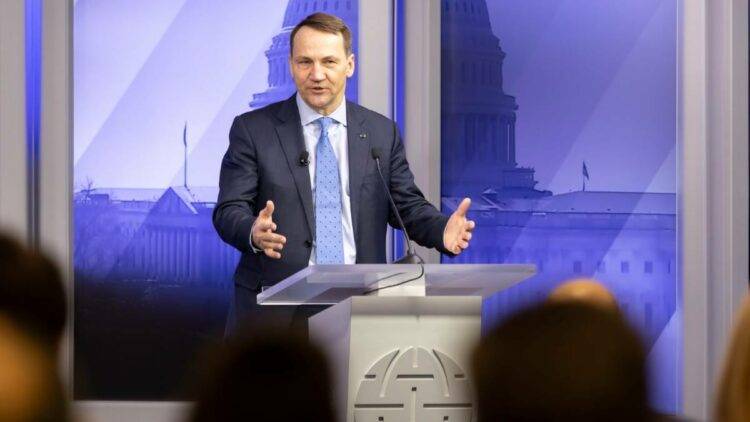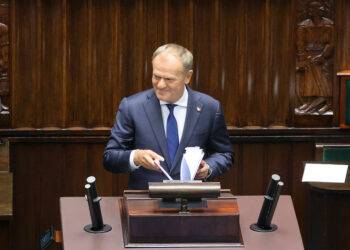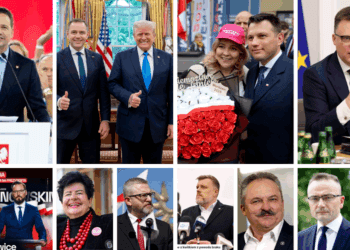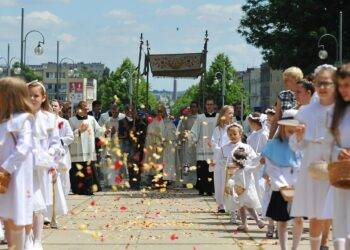Polish Foreign Minister Radosław Sikorski has dismissed claims of a heated conflict with Ukrainian President Volodymyr Zelenskyy, asserting that both nations remain committed to resolving historical tensions surrounding the Volhynia tragedy. This comes after reports suggested a strained meeting between the two leaders in Kyiv last month.
In an interview, Sikorski clarified that during his visit to Kyiv on September 13, he received assurances from Ukraine about moving forward on the exhumation of victims from the Volhynia tragedy, a longstanding issue in Polish-Ukrainian relations. “We want this not to irritate Ukraine but to ensure Polish-Ukrainian reconciliation and an alliance without this sensitive issue,” Sikorski stated, emphasizing that the resolution of this matter is pivotal for future cooperation between the countries.
Media Speculation on Diplomatic Tensions
The recent controversy arose after the Polish news outlet Onet reported that Zelenskyy had a tense exchange with Sikorski during the September meeting. According to sources, the Ukrainian president’s communication style surprised the Polish delegation, sparking rumors of a rift. Sikorski, however, downplayed the incident, stating, “I can certainly stand my ground. We will see through their actions.” He reaffirmed Poland’s commitment to ensuring the exhumation issue is resolved, underlining its importance for the historical and moral balance between the two nations.
The Volhynia Tragedy: A Lingering Issue
The Volhynia tragedy refers to the massacre of Polish civilians by Ukrainian nationalists during World War II, a deeply painful episode in Polish history that continues to impact bilateral relations. In recent years, exhumations of victims’ remains have been a particularly sensitive topic, with Poland advocating for a more thorough investigation and Ukraine showing reluctance due to the issue’s complex historical and political implications.
Poland’s President Andrzej Duda, Speaker of the Sejm Szymon Hołownia, and Deputy Prime Minister and Defense Minister Władysław Kosiniak-Kamysz have all actively supported efforts to address the Volhynia issue. Sikorski also pointed out that these political figures, including himself, are working towards reconciliation, without exacerbating tensions between the nations.
Calls for Resolving the Issue Before Ukraine’s EU Membership
Tensions surrounding Volhynia have also bled into the geopolitical sphere, with Poland’s Defense Minister Władysław Kosiniak-Kamysz recently suggesting that Warsaw should condition its support for Ukraine’s European Union membership on resolving the Volhynia issue. He indicated that Poland should issue an ultimatum to Ukraine regarding this historical matter before agreeing to back its EU accession. However, President Duda has expressed opposition to such a hardline stance, believing that the tragedy should not hinder Ukraine’s European integration.
Commitment to Reconciliation
Despite these political differences, Sikorski reiterated Poland’s dedication to fostering positive relations with Ukraine. He stressed that while historical wounds must be addressed, Poland aims to build a strong alliance with Ukraine, particularly given the ongoing Russian invasion of the country. “We must ensure this sensitive issue does not undermine our unity,” Sikorski said.
As Poland and Ukraine work toward reconciliation, the future of their partnership will likely hinge on how both nations navigate the complexities of their shared past while looking to forge a stronger bond amid current geopolitical challenges.
Background
The Volhynia tragedy, which occurred in 1943, involved the mass killing of tens of thousands of ethnic Poles by Ukrainian nationalist forces in Nazi-occupied Poland. The massacre remains a source of tension between Poland and Ukraine, as both countries wrestle with how to appropriately memorialize the event and seek justice for its victims. While Poland has advocated for the exhumation of Polish victims as a means of reconciliation, Ukraine has been more cautious, given the broader political and historical sensitivities tied to the era.

















